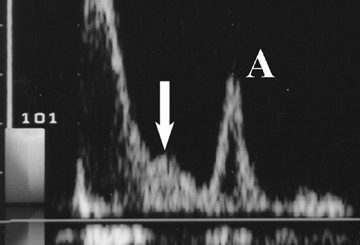Acute appendicitis
Contents
- 1 All are true of acute appendicitis except
- 2 Not a feature of acute appendicitis
- 3 In Alvarado scoring system for acute appendicitis higher score is assigned to
- 4 All are true regarding evaluation of acute appendicitis except
- 5 Not true of NOTES in appendicectomy is
- 6 Appendicitis is caused by a blockage of the hollow portion of the appendix. This is most commonly due to
- 7 In short
All are true of acute appendicitis except
A. Seventy-five percent of patients present within 24 hours of the onset
B. The risk of rupture is variable but is about 2% at 36 hours
C. Fever is present in 90% of patients
C. Males have a slightly higher predisposition to developing acute appendicitis than females
Not a feature of acute appendicitis
A. Dunphy’s sign
B. Rovsing’s sign
C. Obturator sign
D. Myerson’s sign
In Alvarado scoring system for acute appendicitis higher score is assigned to
A. Nausea or vomiting
B. Fever of 37.3 °C or more
C. Leukocytosis > 10,000
D. Neutrophilia > 70%
All are true regarding evaluation of acute appendicitis except
A. A combination of normal WBC and CRP results has a specificity of 98% for the exclusion of acute appendicitis.
B. One-third of patients with acute appendicitis will present with a normal WBC count
C. An abdominal CT scan has greater than 95% accuracy for the diagnosis of appendicitis
D. Non visualization of the appendix in CT rules out appendicitis
Not true of NOTES in appendicectomy is
A. Entry wound is through umbilicus
B. Limits postoperative pain
C. Major drawback is to confirm the closure of the entry site
D. Is an alternative for patients who are considerate about the cosmetic aspects
Appendicitis is caused by a blockage of the hollow portion of the appendix. This is most commonly due to
A. Inflamed lymphoid tissue
B. Calcified “stone” made of feces
C. Parasites
D. Gallstone
In short
Dunphy’s sign is a medical sign characterized by increased abdominal pain with coughing. It may be an indicator of appendicitis
Interval appendectomy is classically performed 6 to 10 weeks after recovery.
Single-incision Laparoscopic Surgery (SILS) for an appendectomy is performed with an incision in the umbilicus or a preexisting abdominal scar. Potential advantages of SILS include decrease in postoperative pain, wound-related post-procedural complications.
If a patient does go into surgery for an incorrect diagnosis of acute appendicitis, then it is advised to remove the appendix to avoid any future diagnostic issues.
Complications of appendicitis and appendectomy include surgical site infections, intra-abdominal abscess formation, prolonged ileus, enterocutaneous fistula, and small bowel obstruction.





